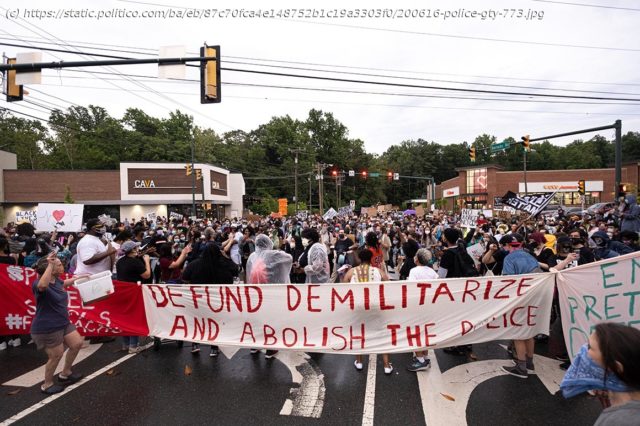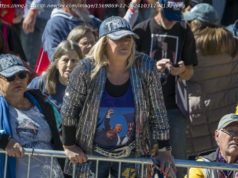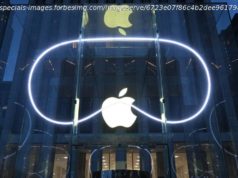A rallying cry once on the margins is now driving the debate around the country as Americans reckon with a law enforcement regime increasingly seen as unjust and unredeemable.
To many watching the historic protests against racism and police brutality unfold across the country, it was a call that came out of nowhere: Defund the Police.
Yet hours after the first videos of George Floyd’s killing at the hands of a Minneapolis police officer went viral online, those three words became the rallying cry of a movement that had suddenly won America’s undivided attention.
chief among them the president of the United States and his allies, as well as the elected Democrats who quickly distanced themselves from a slogan they deemed too radical to embrace — it was baffling. Was it meant to be taken literally? Seriously? Both? Neither? Were the protesters really calling for no police whatsoever?
But the demands to abolish the police didn’t spring from nowhere — they have deep roots among a group of activists and academics who have been arguing for years that merely reforming a system they see as fundamentally broken is futile: To truly address the unfair way police departments treat Black and Latino communities, they say, you need to tear down the entire edifice and start over.
The modern epicenter of the Defund the Police movement is Minneapolis, where a variety of groups motivated by past episodes of police brutality have been organizing for nearly a decade. One of them, the women and LGBTQ-led Black Visions Collective, penned one of the first petitions to defund their city’s police department on May 25, almost immediately after Floyd was killed. “TELL MINNEAPOLIS CITY COUNCIL TO DEFUND THE POLICE,” the headline on the petition read. Within a week, protests had sprung up in all 50 states, all defined by support of black lives and opposition to police violence.
“We did a statewide and national call and that sparked uprisings in other places,” said Oluchi Omeoga, an organizer and core team member with the Black Visions Collective.
As the calls to defund police departments echoed across the country, they forced elected officials to reckon with a movement that had suddenly broken into mainstream discussion. The breakthrough came after years of seeing activists’ impact diluted through incremental reform measures or wholesale ignoring of their demands.
“It’s different than the 2013,2012,2017 iteration of the Black Lives Matter movement,” Omeoga said. “We’re no longer asking for convictions or folks to be indicted. We’re asking for an actual narrative shift, a seismic shift in the systems of police.”
Since Floyd’s death, city councils in more than a dozen cities including Minneapolis, New York and Washington have proposed reductions in their police departments’ annual budgets.






